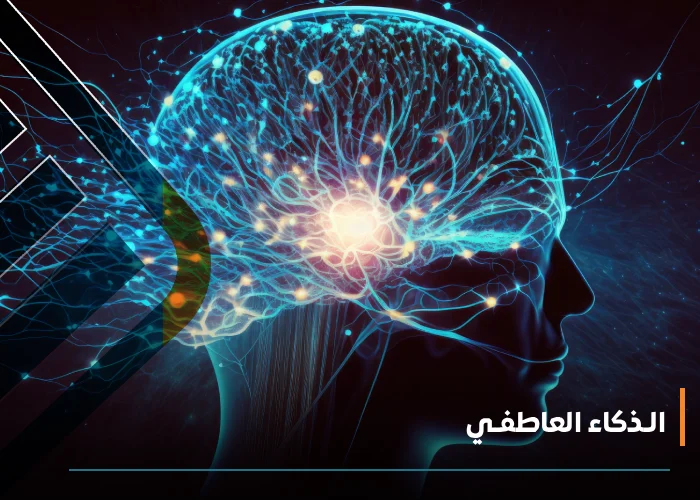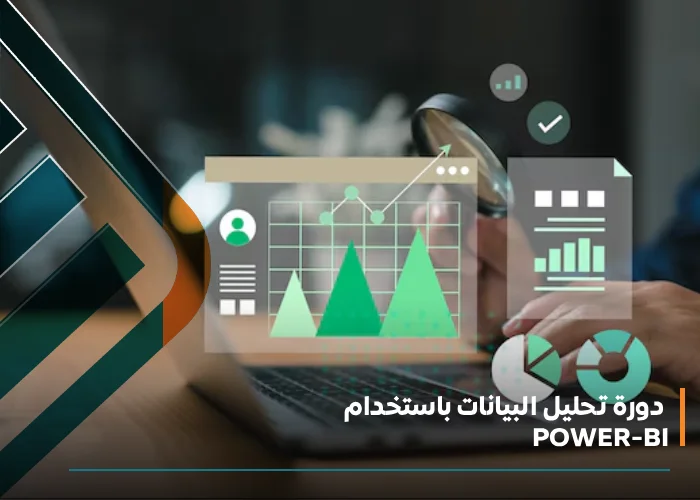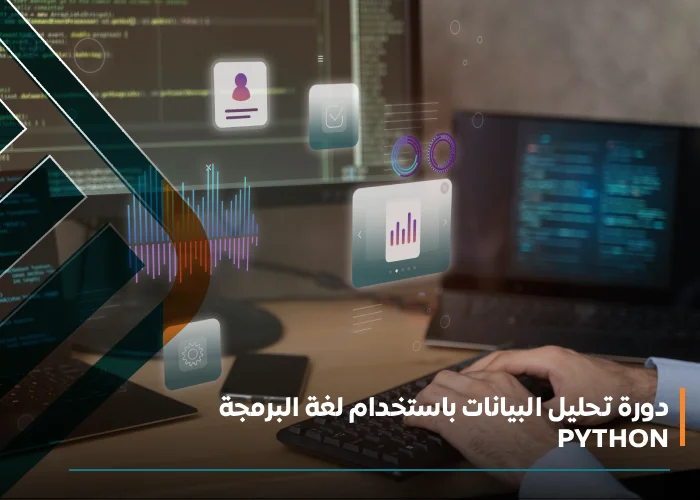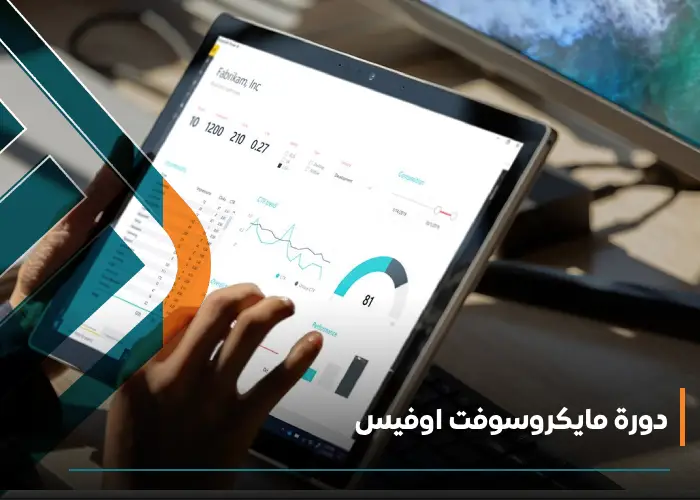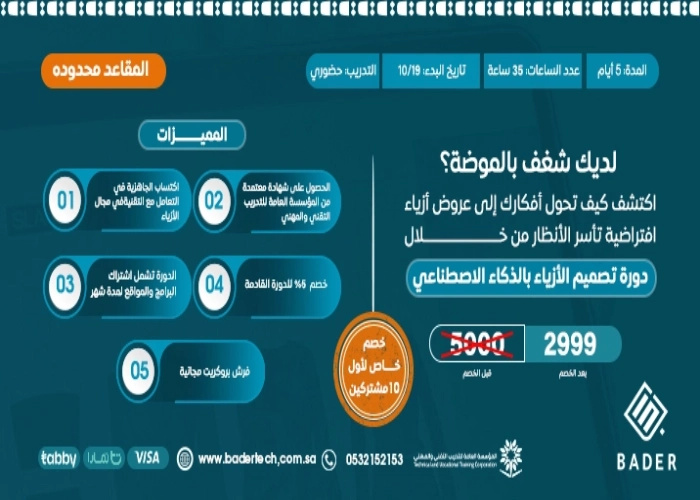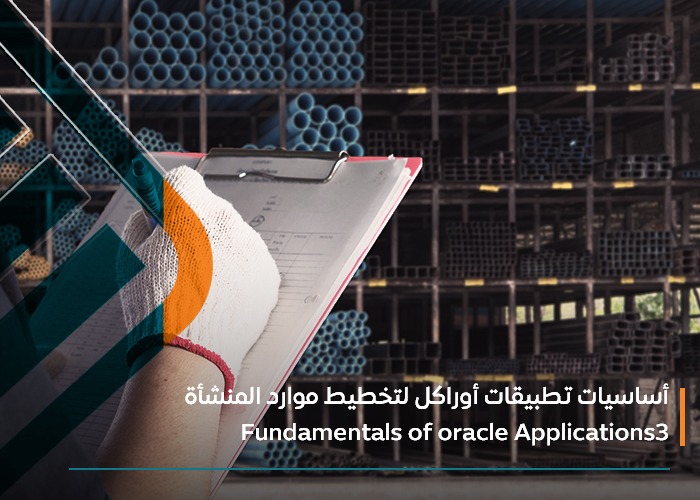General Objective of the Program:
Develop trainees' skills and knowledge to apply the basic principles of emotional intelligence in dealing with superiors efficiently and effectively.
Capabilities the Program Aims to Develop:
Applying the basic principles of emotional intelligence in dealing with superiors efficiently and effectively.
Objectives:
-
Self-awareness of emotions
-
Managing self-emotions
-
Self-motivation
-
Managing subordinates' emotions
-
Applying emotional intelligence in the workplace
Expected Outcomes:
After completing the program, the trainee is expected to be able to:
-
Identify the basic concepts of emotional intelligence easily and efficiently.
-
Apply effective self-awareness methods efficiently and effectively.
-
Apply the basics of self-regulation efficiently and effectively.
-
Identify self-motivation techniques efficiently and effectively.
-
Apply methods for managing others' emotions efficiently and effectively.
-
Apply emotional intelligence in dealing with superiors efficiently and effectively.
About course
In the modern workplace, emotional intelligence is one of the essential skills that directly contribute to improving both individual and team performance. Emotional intelligence includes the ability to recognize and understand emotions, as well as manage personal emotions and relationships with others effectively. With this intelligence, an employee can interact effectively with colleagues and clients, which increases productivity and enhances collaboration in the workplace.
This training course is designed to provide participants with a comprehensive understanding of emotional intelligence and its core dimensions, and how to apply it to improve communication, increase empathy with others, as well as self-motivate in challenging professional situations. The course also focuses on how to use emotional intelligence in leadership to boost morale and build strong relationships within teams.
Through this course, you will learn how emotional intelligence becomes a strategic tool to increase self-awareness, achieve emotional balance, and enhance your professional success. You will gain the necessary skills to employ emotional intelligence in leadership, conflict management, and to promote a healthy work environment.
The Concept of Emotional Intelligence and Its Core Dimensions
Emotional intelligence is the ability to recognize and understand emotions, in addition to managing feelings and interacting with others effectively in the workplace. Emotional intelligence has become one of the most important skills sought by employers today, as it helps individuals improve communication, manage conflicts, and build personal and professional relationships. This type of intelligence is based on a set of core dimensions that contribute to enhancing both personal and collective performance.
Core Dimensions of Emotional Intelligence:
-
Self-Awareness
Self-awareness is one of the foundational pillars of emotional intelligence. It includes the ability to recognize one's emotions and understand how they impact behavior and performance. Self-awareness helps enhance self-confidence and achieve emotional balance, allowing individuals to make more objective decisions in the workplace. -
Emotion Management
The ability to manage emotions appropriately is a key trait of emotional intelligence. This involves controlling emotional reactions, especially in stressful situations. Managing emotions helps maintain calmness and clarity of thought, contributing to effective decision-making and emotional balance in the workplace. -
Self-Motivation
Self-motivation refers to the ability to motivate oneself to achieve goals and attain accomplishments, even in the face of challenges. Individuals with self-motivation are better able to work efficiently under difficult work conditions and continuously strive to improve their performance. -
Empathy
Empathy is a fundamental dimension of emotional intelligence. It involves understanding others' emotions and responding with respect and compassion. Empathy helps build positive relationships within a team and fosters collaboration, which ultimately leads to a better work environment. -
Social Skills
Social skills include the ability to interact effectively with others and build healthy, productive relationships. Individuals who possess this skill are capable of managing conflicts, motivating teams, and building strong work teams that contribute to achieving organizational goals.
Emotional intelligence not only impacts personal aspects but also significantly affects individuals' performance in the workplace. By improving self-awareness, managing emotions, and enhancing empathy, employees can improve their ability to interact with their colleagues and achieve better results. Emotional intelligence is also a critical factor in improving leadership and team management, which enhances organizational success.
The Importance of Emotional Intelligence in Leadership and Its Enhancement in the Workplace
Emotional intelligence is one of the most crucial skills that leaders must possess in the modern workplace. Emotional intelligence plays a large role in improving communication, managing teams, resolving conflicts, and boosting morale within the organization. A leader with high emotional intelligence can effectively interact with emotional situations with awareness and professionalism, which contributes to enhancing overall team performance and achieving organizational goals efficiently.
Importance of Emotional Intelligence in Leadership:
-
Improved Communication
Emotional intelligence helps leaders improve their communication skills with employees. When a leader is able to recognize and understand others' emotions, they can convey their message clearly and in a way that shows empathy and respect. This enhances the leader’s ability to interact effectively with the team and contributes to creating a positive environment. -
Effective Conflict Management
Conflicts between individuals are inevitable in the workplace, and emotional intelligence can lead to resolving these conflicts in a constructive way. A leader with emotional intelligence can deal with conflicts in a neutral manner, which enhances cooperation among team members and reduces tensions. -
Boosting Motivation and Productivity
A leader with emotional intelligence is able to motivate employees and guide them effectively toward organizational goals. Through self-motivation and continuous encouragement, the leader can increase team productivity and achieve work objectives efficiently. -
Building Strong Relationships within the Team
A leader with emotional intelligence is capable of building strong and lasting relationships with employees. Empathy and active listening help build mutual trust between the leader and the team, improving the work environment and boosting morale. -
Maintaining Stability in Difficult Times
During times of challenges or pressures, a leader with emotional intelligence can maintain calmness and make objective decisions despite the circumstances. This helps maintain team stability and achieve goals despite the challenges.
How Emotional Intelligence Enhances the Work Environment
By improving communication and managing relationships, emotional intelligence helps create a flexible and productive work environment.
When leadership applies emotional intelligence, it motivates employees, leading to increased productivity and innovation within organizations.
An emotionally intelligent leader helps effectively handle pressures, enhancing the team’s ability to adapt to changes and achieve collective success.
Emotional intelligence in leadership is the driving force that leads organizations to success. Through conscious interaction with employees and managing emotions professionally, leaders can create a positive and healthy work environment that enables teams to achieve their goals efficiently.
Applying Emotional Intelligence in the Workplace
Emotional intelligence is one of the main factors that significantly impacts both individual and collective performance in the workplace. Emotional intelligence helps manage relationships, resolve conflicts, and improve communication between employees and management, creating a positive and productive work environment. Leaders and employees with high emotional intelligence are better able to interact with daily stresses and challenges, boosting team spirit and organizational commitment.
How to Apply Emotional Intelligence in the Workplace:
-
Improving Communication Between Employees and Superiors
Emotional intelligence enhances employees’ ability to communicate effectively with their superiors and colleagues. By understanding emotions and determining appropriate responses, a leader or employee can direct messages clearly, reducing misunderstandings and promoting transparency in the work environment. -
Effective Conflict Management
Emotional intelligence is a powerful tool for resolving conflicts in the workplace. A leader with this skill can deal with conflicts more objectively and empathetically, contributing to building healthier relationships between individuals and enhancing team spirit. -
Motivating Employees and Increasing Productivity
A leader with emotional intelligence is able to positively motivate the team, increasing employees' drive to excel in their work and achieve common goals. Through moral encouragement and effective guidance, it becomes easier for employees to reach high levels of productivity. -
Achieving Emotional Balance in the Workplace
Emotional intelligence helps achieve emotional balance, reducing stress and increasing self-awareness. Employees with emotional intelligence are better able to manage their feelings effectively, reducing the negative impact of daily pressures on their performance.
Badr Center's Role in Applying Emotional Intelligence in the Workplace
Badr Center is the ideal destination for developing emotional intelligence skills in the workplace. Through specialized training courses, Badr Center provides the necessary tools and strategies to apply emotional intelligence in improving communication, conflict management, and motivating employees. The center offers accredited certificates that enhance your chances of achieving professional success, along with practical training that helps apply emotional intelligence in daily situations.
Best Center for Emotional Intelligence Courses
Badr Training Center is one of the leading training centers that offer specialized courses in developing personal and professional skills. Badr Center offers comprehensive training content suitable for all professional categories, whether in emotional intelligence, work stress management, effective communication, or other skills that contribute to improving individual and team performance in work environments.
What Makes Badr Center's Content Unique:
-
Specialized Training Courses
Badr Center offers a range of specialized training courses covering essential topics such as time management, emotional intelligence, work stress management, leadership development, effective negotiation, as well as courses in digital marketing and project management. -
Scientific and Practical Content
Badr Center is known for offering training content that balances theory and practice, helping trainees apply acquired skills in real work environments. The courses include practical exercises, workshops, and case studies to help participants enhance their professional skills. -
Experienced Trainers
Badr Center employs a team of experienced trainers with extensive expertise in various fields of training. These trainers are not only academically knowledgeable but also experts in practical applications and real-world challenges in work environments. -
Accredited Certificates
After successfully completing the courses, trainees receive accredited certificates from Badr Center, which add value to their resumes and open up greater job opportunities. The certificates are recognized by many companies and institutions across the Kingdom. -
Flexible Training Programs
Badr Center offers both in-person and online training courses, providing trainees with flexibility to choose the most suitable option according to their schedule and needs. The center also offers customized courses tailored to the specific needs of companies and institutions. -
Courses Designed to Meet Market Needs
The courses at Badr Center are designed based on market needs and industry trends, ensuring that the training content keeps up with the latest developments and challenges in modern work environments. -
Continuous Support After Training
Badr Center offers continuous support to participants after completing the training courses through individual consultations and practical reviews to help them apply what they have learned in their professional lives.
If you’re looking for comprehensive courses to help develop your personal and professional skills in a dynamic work environment, Badr Training Center is the ideal choice. With exceptional training content, accredited certificates, and ongoing support after courses, the center helps improve participants' abilities and enhances their opportunities in the job market.
